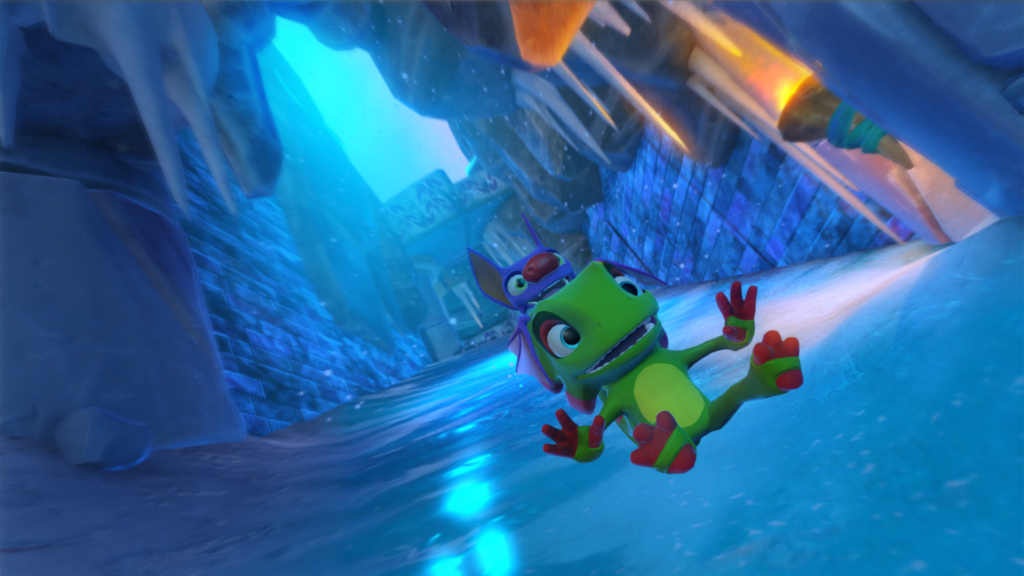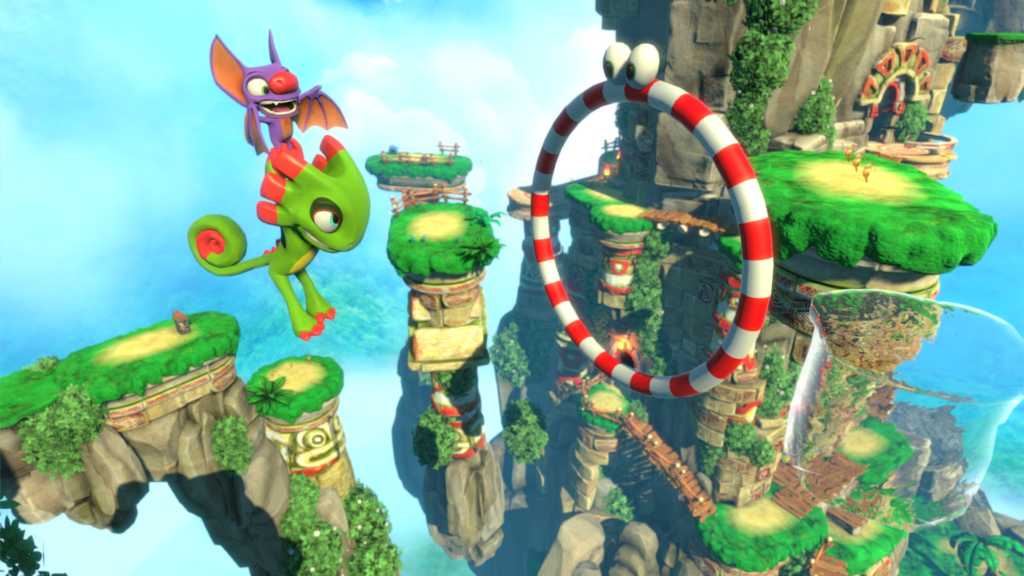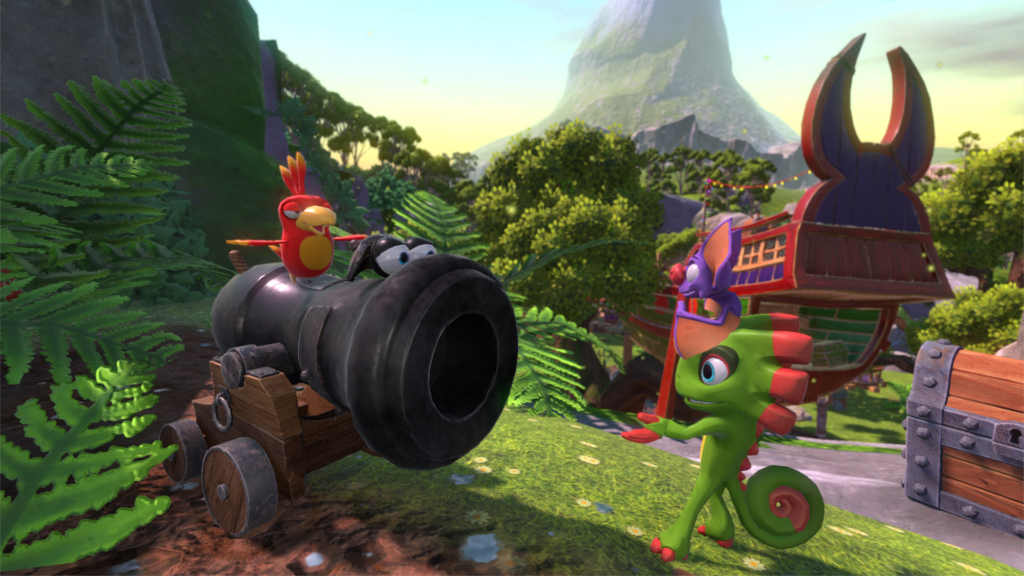Yooka Laylee is the spiritual successor to Banjo-Kazooie we've all been waiting for
The triumphant return of the mascot platformer

Sign up for breaking news, reviews, opinion, top tech deals, and more.
You are now subscribed
Your newsletter sign-up was successful
Sometimes it takes a genre coming back with a vengeance to remind you just how long it's been since you've seen one of its kind.
That was the overwhelming feeling playing Yooka Laylee, the Kickstarted spiritual successor to Banjo-Kazooie from a group of ex-Rare developers, left me with.
"Where," you might ask yourself, "have all the cartoon platformers disappeared to?"
It's not completely fair to say that the cartoon platformer has disappeared entirely of late. After all, Mario is still going strong, and this year saw an excellent remake of the first Ratchet and Clank, but for the most part the platformers that are around today are the gun-toting Uncharteds and the Tomb Raiders of the world.
A mascot and a sidekick
The recent absence of the cartoon platformer is what initially makes Yooka Laylee such a novel game. You play as Yooka, and Laylee sits on your shoulders, allowing you to perform special moves and providing a second character to bounce witty dialogue off.
It's a proven formula seen in Jak and Daxter, Ratchet and Clank, and of course Banjo-Kazooie, and if these games were more common in 2016 you'd be tempted to roll your eyes, but you almost get the impression that it's their scarcity that brought about Yooka Laylee in the first place.
And from the fact that its Kickstarter was funded in just over half an hour you get the impression that there's still a huge appetite for this kind of game.
Sign up for breaking news, reviews, opinion, top tech deals, and more.

The demo we played placed the two characters in an open level which left the player free to head in any direction in search of collectable pages.
Finding them required some simple but satisfying puzzle solving. You can find items in the environment that allows them to absorb a special ability for a short time, but the benefit these abilities bring aren't immediately apparent.
Instead you're left to experiment, leading to discoveries such as an ability that gives you enough weight to cross a series of platforms without being blown astray by gusts of wind.
A sense of humor
None of this is particularly revolutionary. We've had open-world puzzle platformers such as Grow Home before, and although Yooka Laylee has lovely responsive controls, it's nothing we haven't seen from the likes of Ratchet or Jak.
But what sets Yooka Laylee apart is the same slightly adult sense of humor that made Banjo-Kazooie a delight for children and adults alike.
For example, your guide throughout this portion of the game is a Snake which your character reveals to be called 'Trouser'. Get it? Trouser snake?
The gleeful stupidity of it was enough to catch us off guard and leave us literally giggling to ourselves in a crowded convention center.
At another point you meet a talking cannon, who asks you to give him a little pat on the back in order to help him deliver some presents.

It's only once you start actually helping him out that the cannon starts gleefully ranting and raving at its targets, prompting your sidekick to muse, "I don't think it's anyone's birthday…"
Then there's a ghost that continuously burps at you.
These are all small moments in the grand scheme of the game, but collectively, alongside the amazingly vibrant visuals, result in Yooka Laylee positively dripping with charm, that the almost-photorealistic likes of Uncharted could only ever dream of.
A charming platformer for the modern age
Yooka Laylee is far from perfect at this point. It's framerate isn't as slick as it needs to be for a responsive platformer, and some of its puzzles fell on the frustrating side, but these mechanical problems are fixable in a way that a charmless game simply isn't.
It can be tricky designing a game that manages to straddle the fine line between charm and twee, but Yooka Laylee makes it look easy.
All it needs is to achieve the mechanical competence of a platformer of yesteryear and we might just see a resurgence in the mascot platformer.
Yooka Laylee will be released in March 2017.

Jon Porter is the ex-Home Technology Writer for TechRadar. He has also previously written for Practical Photoshop, Trusted Reviews, Inside Higher Ed, Al Bawaba, Gizmodo UK, Genetic Literacy Project, Via Satellite, Real Homes and Plant Services Magazine, and you can now find him writing for The Verge.